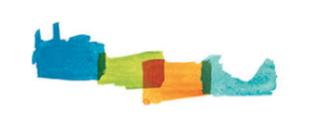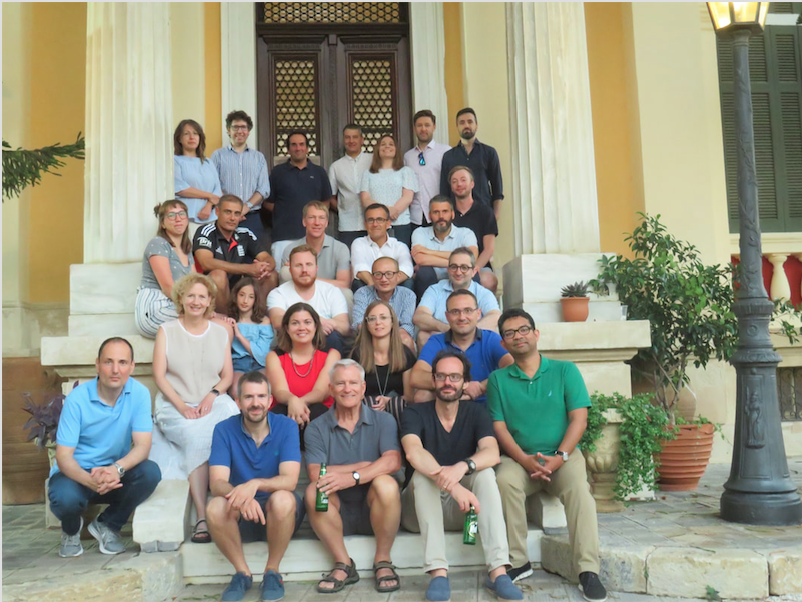
The Crete workshop on Innovation and Creativity, co-organized by George Chondrakis (ESADE), Simone Ferriani (University of Bologna) and David Stark (University of Warwick), was a first attempt to create a multidisciplinary community of scholars who study innovation and creativity as broadly defined. Our key objective was to help appreciate the diversity of perspectives that are required in order to understand creative and inventive processes by bringing together economists, sociologists and management scholars. In this first edition, we enjoyed three keynote speeches by Pierre Azoulay (MIT), Alfonso Gambardella (Bocconi) and David Stark (Warwick). Pierre gave an overview of theoretical work focused on the problem of providing incentives for innovation, while drawing extensively on empirical studies of specific funding schemes. Alfonso presented results from two field experiments that may help us move towards a scientific approach to entrepreneurial decision-making. David challenged to audience to think more broadly about how social change can be conceptualised and how such change processes can be revealed in organisational settings through the use of network-analytic methods.
With: Noah Askin (INSEAD), Pierre Azoulay (Massachusetts Institute of Technology), Gino Cattani (New York University), George Chondrakis (ESADE), Prithwiraj Choudhury (Harvard Business School), Raffaele Conti (Catholic University of Portugal), Coleen Cunningham (London Business School), Denise Falchetti (Boston University), Simone Ferriani (University of Bologna) Giovanni Formilan (University of Warwick), Joachim Henkel (Technical University of Munich), Jan Hohberger (ESADE), David Hsu (Wharton Business School), Julian Jourdan (PSL Paris-Dauphine), Babis Mainemelis (Alba Graduate Business School), Myriam Mariani (Bocconi University), Michael Mauskapf (Columbia University), Pilar Opazo (Massachusetts Institute of Technology), Matteo Prato (USI/University of Lugano), Dimo Ringov (ESADE), Carlos Serrano (Pompeu Fabra University), Stoyan Sgourev (ESSEC), Janet Vertesi (Princeton University), Rosemarie Ziedonis (Boston University)
Organised by: George Chondrakis (ESADE), Simone Ferriani (University of Bologna) & David Stark (University of Warwick)
Sponsored by: ESADE Business School; University of Bologna; BLINDSPOT Project, European Research Council; PRIN, Italian Ministry for Education, Universities and Research

The Summer School is organized annually to promote doctoral education and research in organization theory and related fields (economic sociology, management studies, strategy) and contribute to the development of enlightened practice in the management of business organizations. The Medici Summer School advocates a special focus on cross-fertilizing research across North American and European traditions. The Summer School is a unique educational program for qualified doctoral students interacting with thought leaders in the management field who have shared their knowledge and wisdom on frontier research topics.
The Medici School combines lectures and research seminars by prominent international scholars with active engagement by participating students. Every day of the one-week program is scheduled to end with the presentation of students’ research related to the topic of the School, with a panel of senior faculty providing feedback. There is no fee to participate. Selected candidates will be fully covered in their accommodation expenses provided that they stay the full week.
Organised by: Ezra Zuckerman Sivan and Emilio J. Castilla (MIT); Simone Ferriani and Gianni Lorenzoni (University of Bologna); Rodolphe Durand (HEC Paris); and Gino Cattani (NYU).
Sponsored by: Bologna Business School (University of Bologna); HEC Paris (Society and Organizations Research Center and the HEC Foundation); and MIT Sloan School of Management (Economic Sociology PhD Program).
http://www.hec.edu/SnO/
http://www.medicisummerschool.it/
http://sociology.mit.edu/programs

The 11th edition of the Medici Summer School in Management Studies for doctoral students and young researchers was held in Paris, France, June 16 – 21, 2019.
Theme 2019
Culture and science are often thought of as radically different domains. But among the things they share is a tension with organizations and markets. Rare is the scientist or the cultural producer who declares that they are motivated by profit; and rare is the account of science or culture that begins with the role of the organizations and institutions that facilitate its production and distribution. And yet especially in today’s world, where the commercialization of scientific discovery is widely thought to be of critical importance; and where many more are pursuing careers in art worlds than ever before, such organizations and institutions have a crucial role to play.
For social scientists, the challenges and opportunities associated with the commercialization of culture and science offer extraordinary opportunities to explore new ideas, relationships and logics of organizing while also having a positive impact. They also present opportunities to engage with unorthodox methodologies that are often needed to tackle complex causal interdependences that cut across social, technical, political as well as disciplinary boundaries.
The purpose of “The 2019 Medici Summer School” was to bring together leading researchers who are focused on advancing our knowledge on the organizations and institutions that serve as vehicles and as settings for the commercialization of science or of culture. In particular, our goal was to discuss cutting-edge organizational research that sheds new light on theoretical mechanisms, processes as well as methodological approaches that can enhance our understanding of major questions. This theme choice reflected a sense of excitement about what can and has been learned from comparing and contrasting the domains of science and culture and how each intersects with the market.
With: Deepak Hedge (NYU), Gary Alan Fine (Northwestern University), Denisa Mindruta (HEC Paris), David Hsu (U Pennsylvania Wharton School) and Damon Phillips (Columbia University).

The 10th edition of the Medici Summer School in Management Studies for doctoral students and young researchers was held in Bologna, Italy, June 11 – 15, 2018.
Theme 2018
Societies today face a number of formidable challenges, many of them global in scope. These challenges range from environmental climate change, pollution and ecosystem destruction, to the dramatic upsurge in socially divisive forces such as populism, demagogy, nationalism and extreme political polarization.
The scale, complexity and intractability of these pressing challenges are such that no one entity, discipline or social sector alone can handle, let alone, solve them. They require working across disciplinary boundaries to solve technical problems, and engaging in political action to resolve social ones. They cut across jurisdictional boundaries, entailing multiple criteria of worth. They usher in emergent and nonlinear dynamics, often confronting organizations with extreme uncertainty. Not surprisingly, whether social or environmental in nature, these challenges persist in the face of collective mobilization efforts, technological advances and economic progress.
For social scientists, these thorny societal problems offer extraordinary opportunities to explore new ideas, relationships and logics of organizing while also having a positive social impact. They also present opportunities to engage with unorthodox methodologies that are often needed to tackle complex causal interdependences that cut across social, technical, political as well as disciplinary boundaries.
The purpose of “The 2018 Medici Summer School” was to bring together leading researchers who share a concern for advancing our knowledge on the role of organizations as both vehicles and settings for social change. In particular, our goal was to discuss cutting-edge organizational research that sheds new light on theoretical mechanisms, processes as well as methodological approaches that can enhance our understanding of how complex societal problems can be addressed. This theme choice reflected a sense of excitement across new institutions, initiatives and scholarly efforts that in the last few years have arisen to foster collaborative science and advocacy around these grand societal challenges; but this choice was also aimed at raising awareness that doing science and publishing academic papers is not enough. It is increasingly necessary, in fact, to activate new forms of dialogue and collaboration that transcend narrow academic specialties, and bridge between academia, industry, the policy community and society in general.
WIth: Johanna Mair (Hertie School of Governance & Stanford University), Brian Rubineau (McGill University), Harry Collins (Cardiff University), Brayden King (Kellogg School of Management) and Jennifer Howard-Grenville (University of Cambridge).

The 9th edition of the Medici Summer School in Management Studies for doctoral students and young researchers was held in Cambridge, Massachusetts, June 19 – 23, 2017.
Theme 2017
The purpose of “The 2017 Medici Summer School” was to bring together a group of researchers who share a concern for advancing our knowledge about the organization of innovation and entrepreneurship. In particular, our goal was to discuss cutting-edge research that sheds new light on the theoretical mechanisms and processes that explain how innovation processes work and can be improved; and on the mechanisms and processes responsible for new venture formation. This choice of theme reflects a sense of excitement at the various new institutions that have arisen to support innovation and entrepreneurship—including hackathons, crowdfunding and crowdsourcing, contests, accelerators—as well as promising new lines of research that have opened up due to these settings as well as in response to developments such as the increasing demand for “authentic” products and services, and the increasing call to improve the practice of science by applying scientific methods to research on scientific practice. Among the various reasons to convene a summer school on this topic was that these developments and research discussions tend to cut place across the institutional settings that have been the traditional domains of the disciplines. This array of topics is not only relevant for the advancement of theory and research in organization theory, but it also has important practical implications for employees, groups of individuals, communities and society as a whole.
Keeping in mind that innovation and entrepreneurship are broad topics in the social sciences, we discussed research from different disciplines at certain levels of analysis (individuals, groups, organizations, and even regions). Some of the topics and questions we discussed include (but were not limited to) the following:
Overall, the goal of the 2017 edition of the Medici Summer School was to shed light on the organizational mechanisms underlying innovation and entrepreneurship. The 2017 Medici Summer School therefore helped students untangle a complex theoretical landscape, defining the questions, identifying open puzzles, and delineating the central ideas for a future agenda devoted to the understanding of the organizational bases of inequality. To this end, the 2017 Medici Summer School brought together interdisciplinary scholarship at multiple levels of analysis to understand the phenomena of social valuation within and among organizations. By learning from different theoretical and empirical approaches, we believed attendees substantially enriched their particular research agendas within the broad topic of organizations and stratification.
WIth: Mary Tripsas (Boston College), Toby Stuart (University of California, Berkeley), Fiona Murray (MIT), Karim R. Lakhani (HBS) and Ethan Mollick (University of Pennsylvania).